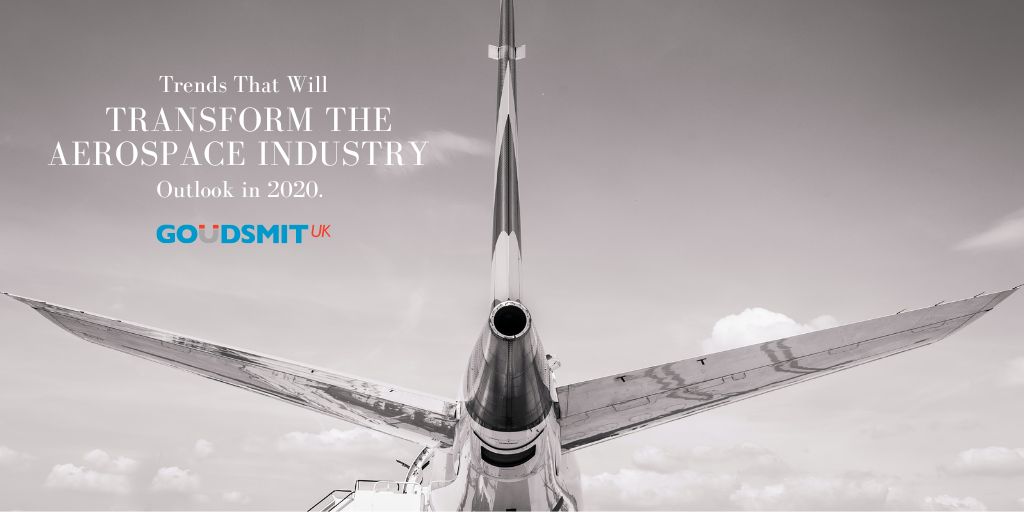With new trends emerging, the aerospace industry has faced a large amount of uncertainty. We look at some of the key trends that are set to transform the aerospace industry in 2020 and beyond.
Information about an industry is one of the largest drivers of success, as it allows a company to evolve and adapt to an ever-changing market. As a result, those operating in the aerospace industry have had to place a focus on the areas outlined below.
Focus on low risk digital innovation
The aerospace industry has focused on and invested in low-risk; high-impact technologies, including:
- Artificial intelligence
- Sensory technologies
- Robotics
The investment in low-risk digital innovation has had a large return on investment through reduced long-term costs, such as in labour, repairs, and maintenance.
Increased modernisation
Aerospace companies have been modernising their platforms in a variety of ways. This has been driven by the fact that many of these systems have been outdated, creating challenges for companies.
The modernisation process has been relatively slow, taking a considerable amount of time for it to take place. However, despite being slow initially, the process has started to speed up. It can be said that new and more specialised technology that requires modern platforms to work, has been the main driver behind speeding up the process.
The shift toward an electric aircraft
Both environmental and financial benefits would emerge if aircrafts had the ability to be powered by electric motors rather than jet fuel. Having realised this, industry experts have already started to implement steps in order to achieve electric aircrafts. Although this is an increasingly complex process, thus companies are taking a more incremental approach by integrating their current equipment with newer components.
Increased mergers and acquisitions
The aerospace industry has seen a staggering number of mergers and acquisitions over the past few years. This is mainly because of the long-term cost savings and increased production rates they offer. Alongside this, there is the opportunity to fund more research and development which could further enhance cost-efficiency and production.
This has meant that many larger firms have been focusing on purchasing SMEs that have been specialising in the research and development phase of the industry.
Autonomous flight systems
Autonomy has been a growing trend across several industries. The aerospace industry intends to increase autonomous flights in order to achieve the goal of fully human-free flights. It will be a while before this is achieved, however, technological developments are being tailored to facilitate this.
The concept already exits today on a much smaller scale with drones. However, this technology will need to be scaled-up before it’s ready for larger planes and longer journeys.
Smart materials
The advances in materials has provided aerospace companies with numerous opportunities and possibilities, such as the ability to make planes more efficient through the reduction of weight and less fuel consumption.
This could lead to further advances in the field, as scientists have been using smart materials to create more advanced wings that could provide more benefits to the niche.
Goudsmit UK
Goudsmit UK have the knowledge, experience and expertise to manufacture bespoke magnets, magnetic assemblies and engineered components to optimise your application.
Contact us today for more information at info@goudsmit.co.uk or on +44 (0) 2890 271 001.
For more information download our products and services brochure.







